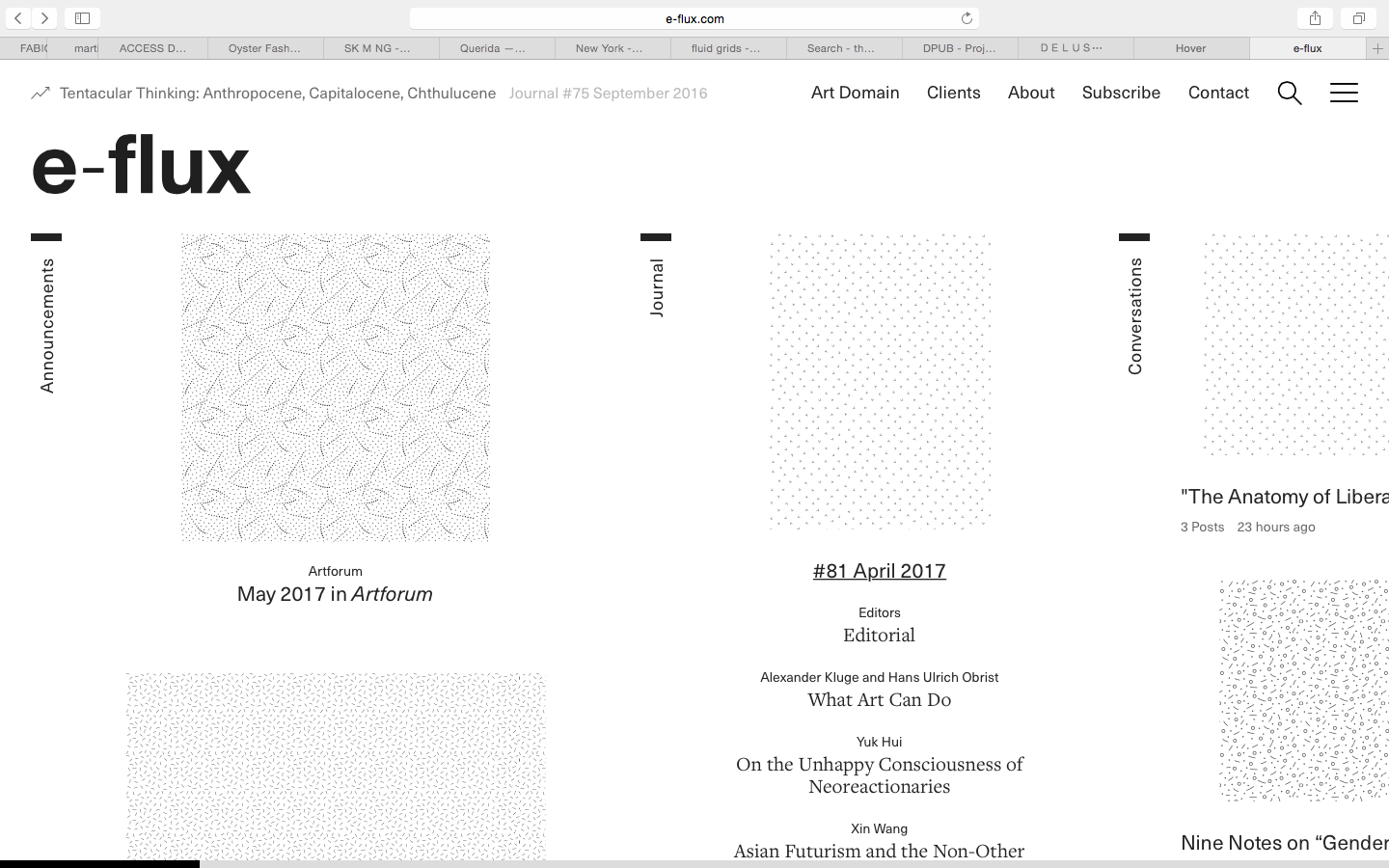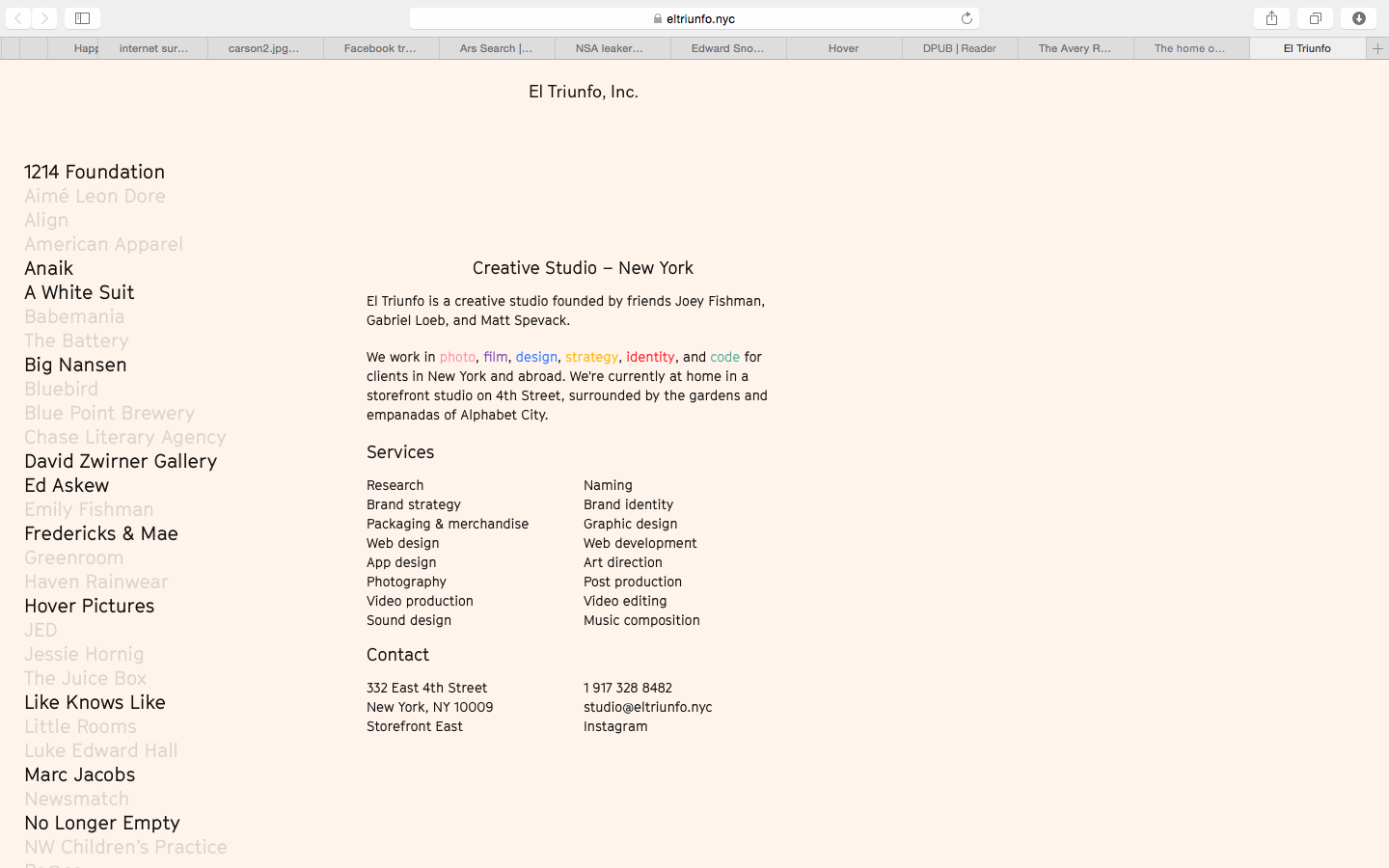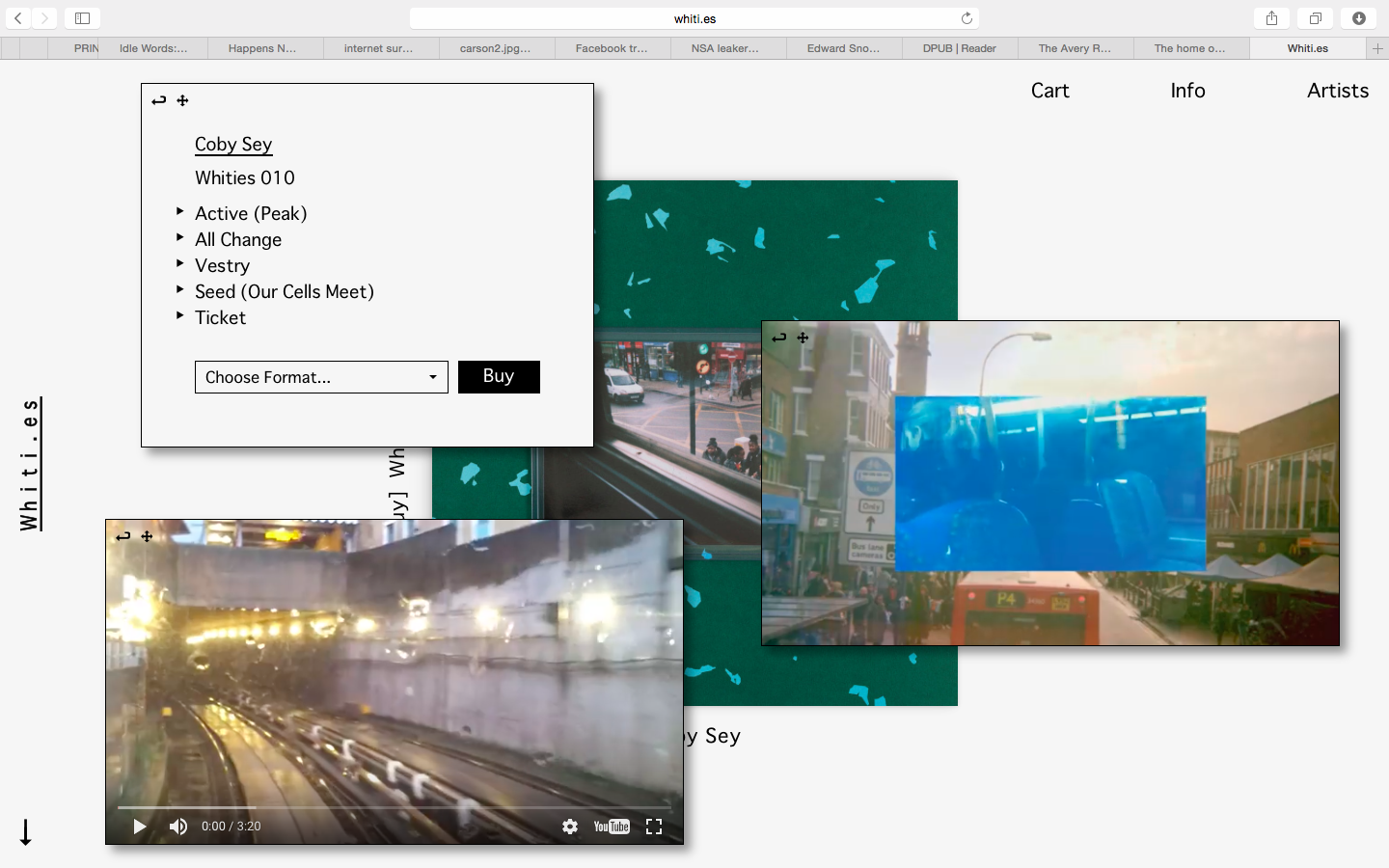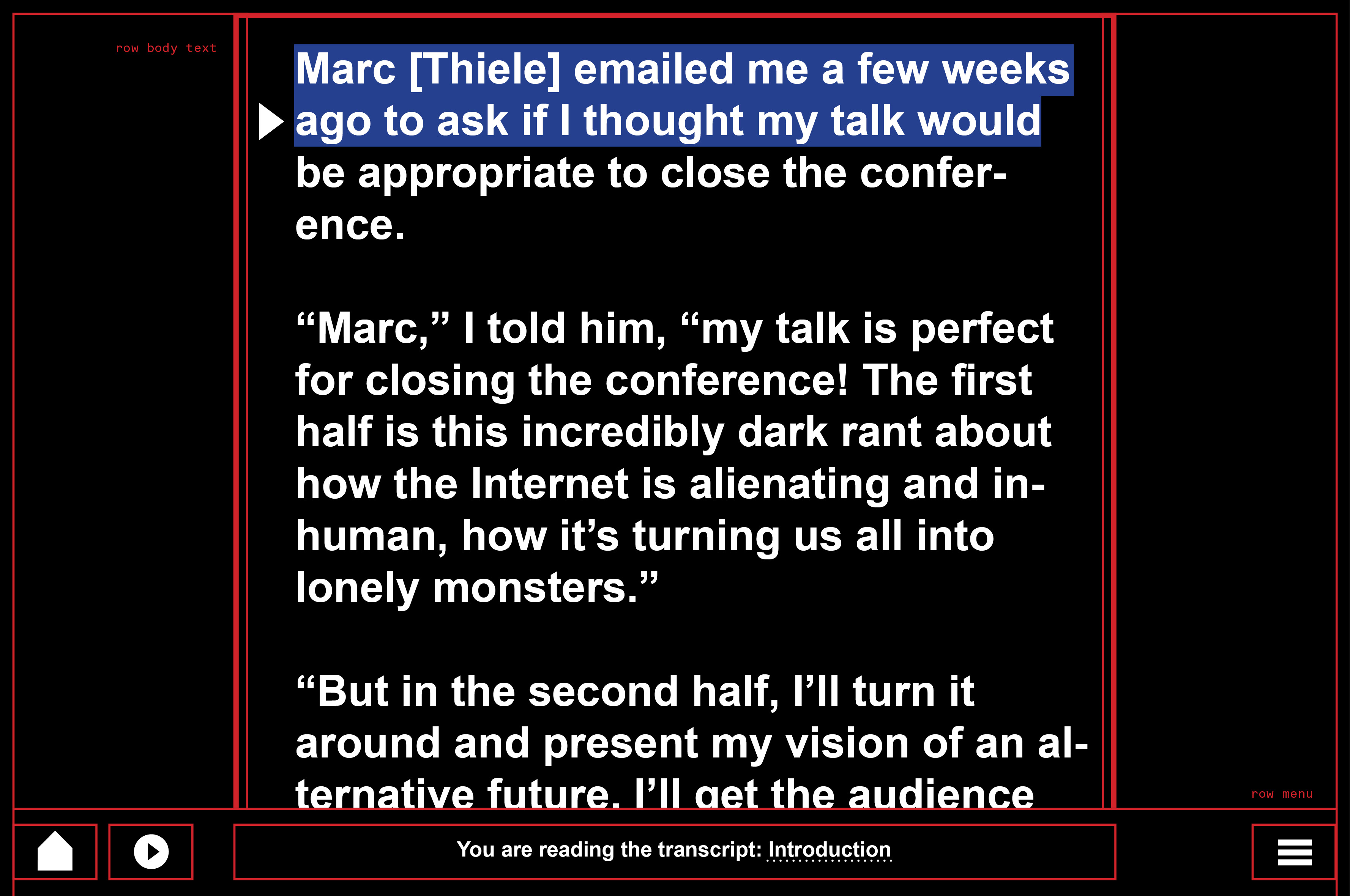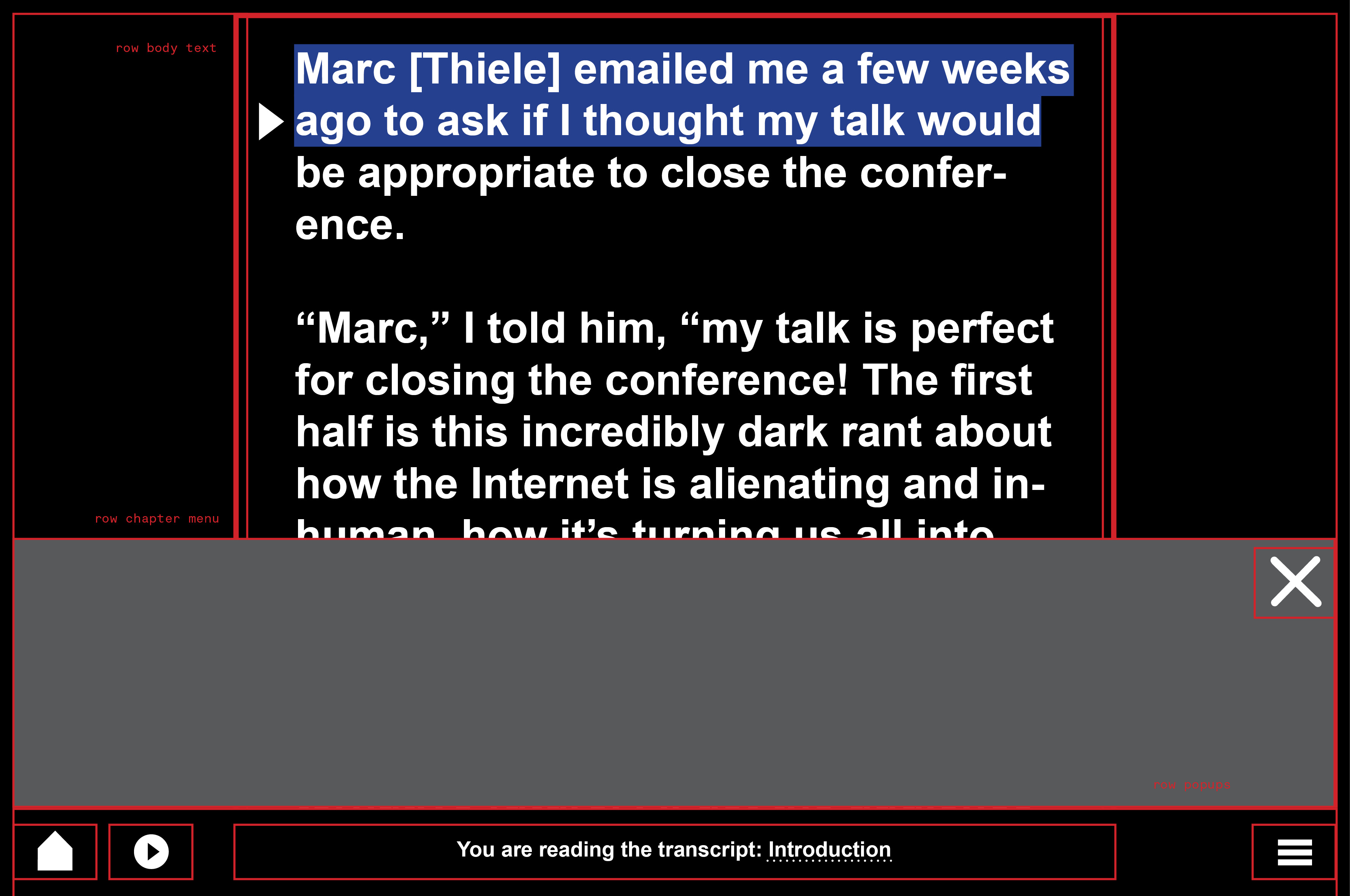The first half is this incredibly dark rant about how the Internet is alienating and inhuman, how it's turning us all into lonely monsters.
All of us are early adopters of another idea— that everyone should always be online.
The Internet Remembers Too Much
A lot of what's wrong with the Internet has to do with memory. Anyone who works with computers learns to fear their capacity to forget. Like so many things with computers, memory is strictly binary. There is either perfect recall or total oblivion, with nothing in between. It doesn't matter how important or trivial the information is. The computer can forget anything in an instant. If it remembers, it remembers for keeps.
We learn to save everything, log everything, and keep it forever. You never know what will come in useful. Deleting is dangerous. There are no horror stories-yet-about keeping too much data for too long.
Our lives have become split between two worlds with two very different norms around memory.
The OFFLINE world works like it always has. I saw many of you talking yesterday between sessions; I bet none of you has a verbatim transcript of those conversations. If you do, then I bet the people you were talking to would find that extremely creepy.
The ONLINE world is very different. Online, everything is recorded by default, and you may not know where or by whom.
BIG DATA: If you collect enough data, you really
can find anything you want.
'Big data' has this intoxicating effect. We start collecting it out of fear, but then it seduces us into thinking that it will give us power. Collecting it drives this dynamic of relentless surveillance.
The Cloud promises us complete liberation from the mundane world of hardware and infrastructure. What the cloud really is, is a big collection of buildings and computers that we actually know very little about.
Everyone Is Spying
It's silly to pretend that keeping mass surveillance in private hands would protect us from abuses by government. The only way to keep user information safe is not to store it.
Privacy-seeking behavior has become grounds for suspicion. Try to avoid the corporate tracking system, and you catch the attention of the police instead.
Advertising is like the flu. If it's not constantly changing, people develop immunity.
A business model that will propel us to very greater extremes of surveillence. If the algorithms don't work, that's a sign we need more data. If the algorithms do work, then imagine how much better they'll work with more data. There's only one outcome allowed: collect more data.
Regulate
It should be illegal to collect and permanently store most kinds of behavioral data. (search history, what you click on, what cell tower you’re using)
One of the worst aspects of surveillance is how it limits our ability to be creative with technology.
Attempts to stay anonymous on
the web will only put the NSA
on your trail
John Naughton, 2014
>>> Original Article
Janet Vertesi, a sociologist at Princeton University gave a talk about her experience of trying to keep her pregnancy secret from marketers.
Pregnant women are regarded by online advertisers as one of the most valuable entities on the net. Vertesi's story is about big data. What it takes to avoid being collected, tracked and entered into databases.
She determined that there would be absolutely no mention of her new state on social media. She phoned or wrote individually to friends and family members to give them the good news, and asked them not to mention it on Facebook. But an uncle in Australia sent her a congratulatory message via Facebook. "I then did," she said, "what any rational person would do. I deleted the thread of all our conversations and unfriended him." He replied plaintively: "But I didn't put it on your wall", apparently unaware that chats and other messages aren't private in the sense that he assumed.
Instead of using a web-browser in the normal way - ie leaving a trail of cookies and other digital tracks, she used the online service
Tor to visit babycenter.com anonymously. She shopped offline whenever she could and paid in cash.
The really significant moment came when she came to buy a big-ticket item – an expensive stroller (aka pushchair) that was the urbanite's equivalent of an SUV. Her husband tried to buy $500 of Amazon gift vouchers with cash, only to discover that this triggered a warning: retailers have to report people buying large numbers of gift vouchers with cash because, well, you know, they're obviously money launderers.
Vertesi's decision to use Tor as a way of ensuring the anonymity of her web-browsing activities was to ensure that, as a mother-to-be, she was not tracked and targeted by online marketers. From the Snowden disclosures and other sources, Tor users are automatically regarded with suspicion by the NSA et al on the grounds that people who do not wish to leave a digital trail are obviously up to no good. The same goes for people who encrypt their emails.
Industries say: The market will fix the problem. If people don't like being tracked then they can opt not to be. But the Vertesi experiment shows that if you take measures to avoid being tracked, then you increase the probability that you will be.
Vision for Cloud computing
(World Wide Developer Conference)
Steve Jobs, 1997
>>> Original Article
I just want to focus on something that’s very close to my heart which is living in a high-speed network world to get your job done everyday.
You know in the last seven years, you know how many times I have lost any personal data? ZERO.
Do you know how many times I back up my computer? ZERO!
I have computers at Apple, at Next, at PIXAR and at home. I walk up to any of them, log in as myself, it goes over the network, finds my home directory on the server and I’ve got my stuff. Wherever I am. And none of that is on a local disk.
One of the things I’m really excited about is to look at that personal computer and take every moving part except the keyboard and the mouse. I don’t need a hard disk in my computer if I can get to the server faster.
I can’t communicate to you how awesome it is unless you use it. What you would decide, within a day or two, is that carrying around these non-connected computers–with tons of data and state in them–is byzantine by comparison.
Edward Snowden, NSA files
source: 'If they want to get
you, in time they will'
Ewen MacAskill, 2013
>>> Original Article
Intro: Snowden is responsible for handing over material from one of the world's most secretive organisations – the NSA.
"I have no intention of hiding who I am because I know I have done nothing wrong,"
"I really want the focus to be on these documents and the debate which I hope this will trigger among citizens around the globe about what kind of world we want to live in." He added: "My sole motive is to inform the public as to that which is done in their name and that which is done against them."
"I don't want to live in a society that does these sort of things … I do not want to live in a world where everything I do and say is recorded. That is not something I am willing to support or live under."
Q: Do you think what you have done is a crime?
A: "We have seen enough criminality on the part of government. It is hypocritical to make this allegation against me. They have narrowed the public sphere of influence."
Q: What do the leaked documents reveal?
A: "That the NSA routinely lies in response to congressional inquiries about the scope of surveillance in America.
Q: Is it possible to put security in place to protect against state surveillance?
A: "You are not even aware of what is possible. The extent of their capabilities is horrifying. We can plant bugs in machines. Once you go on the network, I can identify your machine. You will never be safe whatever protections you put in place."
